Top 10 best music director in India
"Music is a God's language"
"Music is everywhere"
Everyone was attached to music like emotion or romance
so music basic for every human. but in India, nowadays many music directors are proving their talent.
but all-time favorite and best people were A.R.Rahuman, Ilaiyraja.
Film and Music have consistently been inseparable. The effect of the film is complemented flawlessly by music, while music, since the previous century, has gone visual with the approach of music recordings. In any case, no place is this brotherhood as unmistakable as in India and its film. Filmi music makes up 72% of the music deals in India. Our rich, routine culture has constrained our producers to give music a distinction which here and there shrouds the significance given to the story! Music can represent the moment of truth a movie in this country, and consequently its types – the music chiefs – are probably the main machine gear-pieces in the artistic business. Like dialects, design, food, and each and every social part of India, music is incredibly assorted across its parts. Everything from Carnatic to hip-bounce has an influence over music in our movies. Picking the 20 biggest bosses of songs in the nation is consequently a Sisyphean endeavor. In any case, I have attempted to break shared belief by picking music chiefs dependent on their life span, heritage, and commitment to the layers of music they have acted in. Here they are, the rulers of Indian Filmi music; the best Indian music chiefs to at any point elegance us:
Notable Soundtracks: Aashiqui (1990), Saajan (1991), Raja Hindustani (1996), Pardes (1997), Dhadkan (2000)
This pair, comprising of Nadeem Akhtar Saifi and Shravan Kumar Rathod, reigned the Bollywood music industry in old fashioned 90s, Bursting into the standard with 'Aashiqui', which is as yet thought to be probably the best soundtrack, they created significant hits for one more decade and a half. In a range of a long time from 1990 to 2005, Nadeem-Shravan neglected to create a Top 3 top-of-the-line collection for just 4 years (1998, 1999, 2004, 2006). Nadeem's supposed contribution in the grim Gulshan Kumar murder put the plug on their vocation, however at whatever point we pay attention to 90s staple tunes like "Dheere Se" or "Do Dil Mil Rahe Hain".
19. Khayyam
Notable Soundtracks: Shola Aur Shabnam (1961), Kabhie Kabhie (1976), Umrao Jaan (1981)
Mohammed Zahur "Khayyam" Hashmi, would discover a spot inside this rundown regardless of whether he had created the last two show-stoppers from a higher place. He made his introduction as Sharmaji of the Sharmaji-Varmaji author pair with the film Heer Ranjha in 1948, yet went solo after his co-arranger Rahman Varma went to the recently made Pakistan post parcel. Victor of the Sangeet Natak Akademi Award and granted with Padma Bhushan, India's third-most noteworthy non-military personnel honor, Khayyam was striking for the predictable utilization of verse and beautiful verses in his creation. His music goes with crafted by a scope of artists from Mirza Ghalib to Sahir Ludhianvi. Khayyam himself is an expressive masterpiece.
18. Jatin-Lalit
Notable Soundtracks: Jo Jeeta Wahi Sikandar (1991(, Dilwale Dulhaniya Le Jayenge (1995), Yes Boss (1997), Mohobbatein (2000), Kabhie Khushi Kabhie Gham (2001)
Shah Rukh Khan is considered outlandish to the extent sentiments go, and it is in no little part because of the important music in his movies. What's more, if request you to name 5 from your #1 SRK films, odds are that more than one would have Jatin and Lalit Pandit playing its melodies. The team has loaned their abilities to a portion of the entertainer's most vital film, in any event, for apparently the most fiercely popular film sentiment – DDLJ. Moreover, they have made the soundtracks for two of the most worshiped transitioning movies to at any point emerge from Bollywood – 'Jo Jeeta Wahi Sikandar' and 'Mohobbatein'. They have depicted everything from aches of first love in "Pehl Nasha" to an admission of it in "Tujhe Dekha Toh Ye Jaana Sanam". Jatin-Lalit is high up on the 'Fundamental Romantic Tunes" list.
Notable Soundtracks: Life… In A Metro (2007), Jab We Met (2007), Love Aaj Kal (2009), Barfi! (2012), Yeh Jawani Hai Deewani (2013), Ae Dil Hai Mushkil (2016)
Say what you may pretty much all the copyright infringement claims, you can't reject that Pritam Da has sufficient unique music in his collection to warrant a spot here. Having chipped away at over 100 movies, Pritam has consolidated and mixed diverse Indian and worldwide styles into his music – including Rock (Life in a Metro), Sufi (Once Upon Time in Mumbai), and even Ghazals (Barfi). What's more, there are not many preferable melodies in this decade over ones wrote by lyricist Amitabh Bhattacharya and scored by him. In 'Barfi' generally viewed as probably the best soundtrack of the new Millenium, Pritam mixes Brazilian Bossa Nova music and the Indian ghazal sound flawlessly. While Pritam regularly gets intensely "enlivened" from a great deal of worldwide mainstream music, he generally adds his own imaginative twist to the issue. With a line of good collections, he is maybe the best Bollywood music head of the 2010s.
16. Shankar-Ehsaan-Loy
Notable Soundtracks: Dil Chahta Hai (2001), Kal Ho Naa Ho (2003), Lakshya (2004), Taare Zameen Par (2007), Rock On! (2008), Zindagi Naa Milegi Dobara (2011)
SEL resembles an impeccably mixed drink from numerous points of view. They consolidate the Carnatic and Hindustani vocal custom (Shankar), Western stone (Ehsaan), and a profound comprehension of combination including a virtual dominance over the electronic synthesizer (Loy) to present a desi yet worldwide energy to their music. They have created music for more than 50 movies across 5 dialects – Hindi, English, Marathi, Tamil, and Telugu. Foundation Award-winning lyricist Gulzar has portrayed their music as a reasonable amalgamation of notoriety and class. Credited with resuscitating the interest of the Indian twenty to thirty-year-olds into traditional music with their contemporary combination sounds, the 'Amar Akbar Anthony' of Indian music is unquestionably the smartest possible solution.
Notable Soundtracks: Nadhi (1969), Thriveni (1970), Oru Penninde Katha (1971), Chemparathi (1972), Swamy Ayyappan (1975)
G. Devarajan is the best music chief to have worked in Kerala. He at first heaped his exchange melodic theater, working for the celebrated theater company Kerala Peoples Arts Club (KPAC). It is here that he collaborated with lyricist Vayalar Rama Varma, with whom he later chipped away at endless hits in what is presently known as the 'Brilliant Era of Malayali Music' till the last's demise during the 1970s. Devarajan ruled over Malayalam music for more than fifty years. Famous for his utilization of different ragas and for repeating the state of mind of his verses with music, Devarajan was previously the doyen of South Indian music.
14. Madan Mohan
Notable Soundtracks: Wo Kaun Thi? (1964), Dastak (1970), Veer-Zara (2004)
Madan Mohan's inheritance, which would've been incredible in some other time, is maybe eclipsed by the colossal achievement of his companions in the period when Bollywood music was at its apex. Dedicated Ghazal ka Shehzadaa (The Prince Of Ghazals) by Lata Mangeshkar, he framed a lucky association with her and is behind a portion of the songbird's most adored tunes (counting the hauntingly delightful "Slack Jaa Gale"). Instead of the more standard, worldwide hints of his peers, for example, the Burmans or Shankar-Jaikishan, Mohan was a perfectionist who laid accentuation on old-style instruments, and ghazal structures, making a specialty for himself regardless of a less protruding collection. An undesirable legend.
13. K.V Mahadevan
Notable Soundtracks: Kandan Karunai (1967), Adimai Penn (1969), Sankarabharanam (1979), Swathi Kiranam (1992)
Madan Mohan's inheritance, which would've been amazing in some other time, is maybe dominated by the monstrous accomplishment of his friends in the time when Bollywood music was at its apex. Initiated Ghazal ka Shehzadaa (The Prince Of Ghazals) by Lata Mangeshkar, he shaped an advantageous organization with her and is behind a portion of the songbird's most worshipped tunes (counting the hauntingly delightful "Slack Jaa Gale"). Rather than the more standard, worldwide hints of his counterparts, for example, the Burmans or Shankar-Jaikishan, Mohan was an idealist who laid accentuation on old-style instruments, and ghazal pieces, making a specialty for himself despite a less swelling collection. An undesirable legend.
12. Vijaya Bhaskar
Notable Soundtracks: Santha Thukaram (1963), Belli Moda (1967), Gejje Pooje (1969), Sharapanjara (1971), Naagarahaavu (1973), Malaya Marutha (1986)
From one diverse, multilingual music chief to another. Vijaya Bhaskar, notwithstanding his memorable commitment to Kannada music, worked in Tamil, Telugu, Malayalam, Marathi, Tulu, and Konkani language films too. When an associate to performers like Naushad and Madan Mohan, he was spotted by celebrated Kannada chief BRK, who offered him a reprieve in Kannada film. Scoring music for more than 600 component films, he is known for having presented 'signature music' in Kannada films. He is likewise attributed with motivating makers to choose well-known works of Kannada writers through his music. A distinct advantage in Sandalwood.
11. O.P. Nayyar

Notable Soundtracks: Mr. & Mrs. ’55 (1955), CID (1956), Naya Daur (1957), Kashmir Ki Kali (1964)
Tragically, O.P. Nayyar is maybe more notable for the one thing he didn't do (record a melody with Lata Mangeshkar, being the solitary significant music head honcho from Hindi music's brilliant age to do as such) than for the twenty years worth of melodic work he did. Regardless of the furiously individualistic artist's obliviousness of the dulcet call of Lata Ji, his raspy, playful numbers are engraved in recollections of millions, particularly ones recorded on comic legend Johnny Walker, as "Bambai Meri Jaan" and "Jaane Kaha Mera Jigar Gaya Ji". Without Mangeshkar, Nayyar shaped compensating organizations rather with Geet Dutt, Shamshad Begum, and Asha Bhosale. However, tragically, his fallings out with Bhosale, and with Mohd. Rafi too, failed his vocation out route before it ought to have. However, Nayyar's music when he was at his best, in contrast to his inconsistent vocation, is immortal.
10. Raichand Boral

Notable Soundtracks: Mohobbat Ke Ansu (1932), Zinda Lash (1933), Dhoop Chhaon (1935)
The seeds for Indian filmi music were planted even before India accomplished sway, at the New Theaters, Kolkata, by Raichand Boral and his partner Pankaj Mulick. In the wake of coordinating the foundation scores for some quiet Hindi and Bengali movies, he kicked off something new by spearheading the music in the underlying talkie films, and acquainted playback singing with the country in the movie 'Dhoop Chhaon', setting a benchmark of music course which would be followed for the following twenty years. He is consequently properly credited as 'The Father Of Indian Cinema Music'.
9. C. Ramchandra
Notable Soundtracks: Albela (1951), Anarkali (1953), Vanjikottai Valiban (1958), Navrang (1959)
The seeds for Indian filmi music were planted even before India accomplished sway, at the New Theaters, Kolkata, by Raichand Boral and his partner Pankaj Mulick. In the wake of coordinating the foundation scores for some quiet Hindi and Bengali movies, he kicked off something new by spearheading the music in the underlying talkie films, and acquainted playback singing with the country in the movie 'Dhoop Chhaon', setting a benchmark of music course which would be followed for the following twenty years. He is subsequently properly credited as 'The Father Of Indian Cinema Music'.
Notable Soundtracks: Aboorva Ragangal (1975), Muthana Muthallavo (1976), Raasathi Kalyanam (1980), Andha 7 naatkal (1981)
Taking everything into account, nobody in the nation can compare to the Thirai Isai Chakravarthy (Tamil for "The Emperor of Cine Music") M.S. Viswanathan. Having formed music for more than 1200 movies and made more than 15000 melodies, he is an outright monster in Tamil music history. Otherwise called Mellisai Mannar (Tamil, for "The King of Light Music"), he presented fresher tunes, style, and organization into the then prevalently Carnatic Tamil Film music. He at first worked with T. Ramamoorthy as a piece of the couple Viswanathan-Ramamoorthy, yet they split post over 100 movies. Viswanathan came from exceptionally humble beginnings to such an extent that his mom attempted to slaughter him and herself when he was only a kid. He functioned as a seller outside a cinema and started proceeding as a vocalist at the youthful age of 13. Poverty to newfound wealth story of sheer will.
7. Laxmikant Pyarelal

Notable Soundtracks: Dosti (1964), Bobby (1973), Amar Akbar Anthony (1977), Satyam Shivam Sundaram (1978), Sargam (1979), Karz (1980), Kranti (1981), Tezaab (1988), Ram Lakhan (1990)
Laxmikant-Pyarelal's excursion to their notorious status is practically similar to a film itself. They met at Sureel Kala Kendra, a music institute for youngsters, run by the Mangeshkar family. Their similitudes before long made them old buddies, and Laxmikant even prevented Pyarelal from traveling to another country to work for a symphony. They filled in as arrangers for practically all enormous name performers, who might then turn into their friends, all through the 50s. Be that as it may, with help and from (and voices of) their guides, Lata Mangeshkar and Mohd. Rafi, the team hit it large, winning their first Filmfare Best Music Director Award for 'Dosti', in front of stalwarts like Shankar-Jaikishan (for 'Sangam') and Madan Mohan (for 'Woh Kaun Thi?'), and before long denoted the beginning of another age of music chiefs.
Notable Soundtracks: Rattan (1944), Anmol Ghadi (1946), Baiju Bawra (1952), Mother India (1957), Mughal-E-Azam (1960), Ganga Jamuna (1961), Pakeezah (1971)
While so numerous music chiefs discovered acclaim fusing worldwide tones into Indian filmi music, it was Naushad Ali, who spearheaded the craft of deft variation of old-style music in standard cinema. Many of his pieces, most noticeably in the silver celebration hits, for example, 'Baiju Bawra' and the everlasting 'Mughal-E-Azam', were roused by ragas and he even utilized recognized traditional artistes like Amir Khan and Ghulam Ali Khan to give his music the ideal sheen. Moreover, he was one of the first to present sound blending and the different chronicles of voice and music tracks in playback singing. He was additionally quick to join the flute and the clarinet, the sitar, and the mandolin. He acquainted the accordion with Hindi film music and was quick to focus on ambient sound to underscore on characters' dispositions and exchange through music. A leader of the advancement in Indian music.
5. Shankar Jaikishan

Notable Soundtracks: Barsaat (1949), Awaara (1951), Shree 420 (1955), Chori Chori (1956), Dil Apna Aur Preet Parai (1960), Sangam (1964), Brahmachari (1969), Mera Naam Joker (1972)
The year was 1949 and the film was ‘Barsaat’. Raj Kapoor, who was just a fledgling director back then, had a fallout with music director Ram Ganguly. In a flash, he decided to give the job instead to assistants Shankar and Jaikishan, who he had befriended in his days as an assistant at his father’s Prithvi Theatre. They then insisted on featuring a budding chanteuse named Lata Mangeshkar. The rest, as they say, is melodious history. Along with being the ‘in-house composers’ for RK Films, SJ forged lasting collaborations with lyrical supremos Shailendra and Hasrat Jaipuri, and with Mangeshkar, her sister Asha and mellifluous Mod. Rafi to create some of the most evergreen music of the 50s – 70s, despite a stiff contest from some of the maestros we’ve previously talked about. Their unique prelude-mukhra-interlude-stanza is still a staple in filmi music, whereas their blend of western classical waltz and jazz sounds with Indian music created a whole new genre of Indo Jazz. The poster boys of India’s Golden Era of Music.
4.S.D. Burman
Notable Soundtracks: Baazi (1951), Devdas (1955), Pyaasa (1957), Chalti Ka Naam Gaadi (1958), Sujata (1959), Guide (1965), Aradhana (1969), Abhimaan (1973), Zindagi Zindagi (1974)
TThe paan-cherishing ruler of the imperial group of Tripura formed music for just around 100 movies over a profession traversing thirty years, which is pitifully contrasted with his peers, however, he obscures every one of them (nearly!) in height and on this rundown, as his numbered soundtracks were the absolute most prominent and most unique works of their time. Known likewise for having utilized Mohd. Rafi and Kishore Kumar – ostensibly two of India's most commended male performers – in practically equivalent measure, he produced the last's vocation alongside that of Asha Bhosale (in spite of the fact that O.P Nayyar had a great deal to do with Asha's ascent to distinction as well). S.D. Burman's accentuation on cadence rather than exorbitant instrumentation and arrangement of melodies delicate to the disposition of the film is interminable. This is maybe underlined by the way that he is the main music chief to have won the lofty Sangeet Natak Akademi Award.
3.R.D. Burman
Notable Soundtracks: Teesri Manzil (1966), Padosan (1968), Kati Patang (1970), Hare Rama Hare Krishna (1971), Amar Prem (1971), Yaadon Ki Baaraat (1973), Sholay (1975), Hum Kisise Kum Naheen (1977), Satte Pe Satta (1982), Ijazat (1987), 1942: A Love Story (1994)
The child bests the dad. Nicknamed 'Pancham Da' by his admirers, R.D. Burman made such countless paramount tunes across forty years, a large number of which are as yet recalled, referred to, and revamped to this date, that it is difficult to try and realize where to start discussing them. Burman reliably made a portion of India's most appreciated soundtracks for memorable blockbusters, frequently energized by the achievement. The triplet of Rajesh Khanna-Kishore Kumar-R.D.Burman, who cooperated in 32 movies together, is perhaps the most immortal entertainer artist chief mixes. Notwithstanding the Western, Oriental, Latin, and Arabic stamp on his music, he was celebrated for utilizing idiosyncratic strategies, for example, scouring sandpaper and thumping bamboo stays together to make a novel sound. He blew into brew containers to create the initial beats of "Mehbooba, Mehbooba". Likewise, he utilized cups and saucers to make the tinkling sound for the melody "Churaliya Hai". For "Satte Pe Satta", he made the vocalist Annette Pinto swish to create a foundation sound. He scoured a brush on an unpleasant surface to deliver a whooshing sound in the tune "Meri Samne Wali Khidki Mein". Notable music pundit Douglas Wolk once said that Burman "wrapped sweet string dips around however many thoughts as he could press in without a moment's delay". Motivating present
2. Ilayaraja
Notable Soundtracks: Saagara Sangamam (1984), Sindhu Bhairavi (1986). Nayagan (1987), Rudraveena (1989), Thalapathi (1991),
He is teacher A.R.rahumanbut he number one position in music and also the world popular. once he gets ego when A.R.rahuman gots oscar.
This is the maestro who A.R. Rahman once gained from and worked for. As well as creating the soundtrack for over 1000 movies (five of which won him National Awards), Illayaraja has had the prestigious Royal Philharmonic Orchestra play a whole ensemble made by him! Ilaiyaraja is likewise known for making music by melding musical coordination with customary Indian instrumentation, regularly performed by Budapest Symphony Orchestra. Ilaiyaraaja has made melodies amalgamating components out of types like Indian old-style, Indian society/conventional, Afro-ancestral, Bossa Nova, Dance music (e.g., Disco), Doo-wop, Flamenco, Acoustic guitar-impelled Western people, Funk, Jazz, March, Pathos, Pop, Psychedelia and Rock N' Roll. In 2003, as per a global survey directed by BBC, individuals from 155 nations cast a ballot his structure "Rakkamma Kaiya Thattu" from the 1991 movie 'Thalapathi' as fourth on the planet's main 10 most well-known tunes ever. Isaignani (The melodic virtuoso), as he is called, is maybe the most acclaimed Indian music head ever.
1. A.R. Rahman
Notable Soundtracks: Roja (1992), Bombay (1995), Minsara Kanavu (1997), Dil Se (1997), Taal (1999), Lagaan (2001), Rang De Basanti (2006), Guru (2007), Slumdog Millionaire (2008), Rockstar (2011)
The name the greater part of you looked over this far down to see and the greatest group top picks on this rundown overwhelmingly. Allah-Rakha Rahman or 'The Mozart Of Madras' is in his very own class among the present arrangers. Rahman has remained stuck to his old style attaches while figuring out how to keep up significance through contemporary energy and Everlong need for demanding experimentation. The temperate mix of Indian old-style tunes with the trendiest worldwide music has seen him sack two Academy Awards, two Grammy Awards, a BAFTA Award, a Golden Globe, four National Film Awards 2 Oscars Awards winner and fifteen Filmfare Awards. In a wonderful two-decade profession, he has had a lion's offer in taking Indian music to a worldwide level, getting one of the world's smash hit recording craftsmen simultaneously. Suitably named Isai Puyal (The Musical Storm). A.R. Rahman, whose original name was A.S. Dileep Kumar, was the son of a Tamil film composer. He learned to play piano as a young child growing up in Madras (now Chennai ), India.
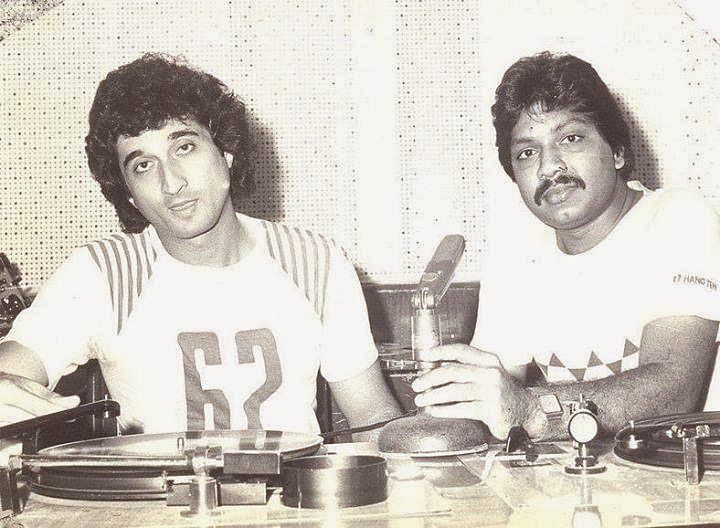
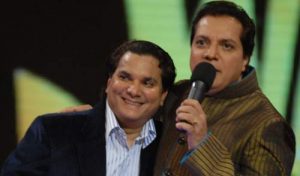

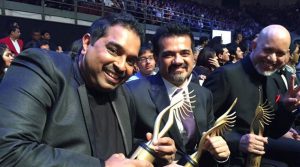
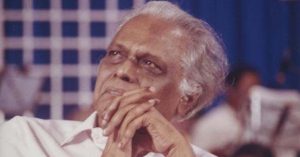
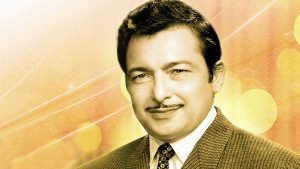





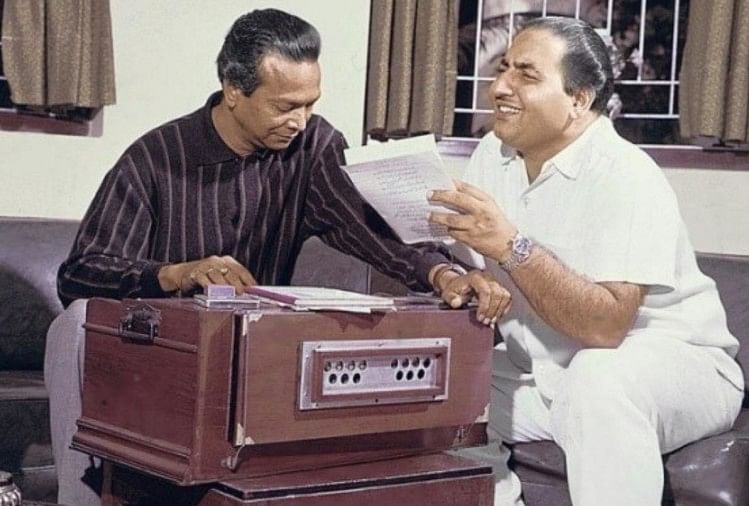






Comments
Post a Comment